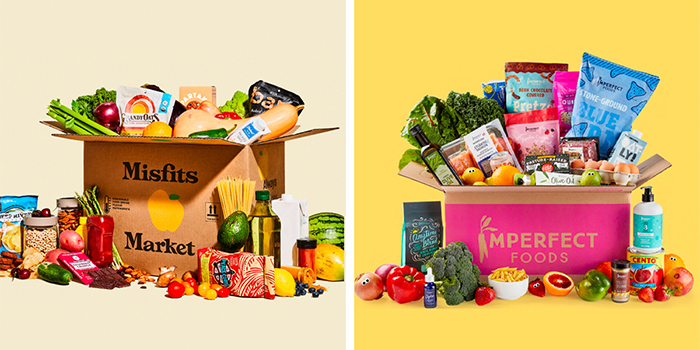Nothing “Ugly” About It: Misfits Market Acquires Imperfect Foods

Grocer Misfits Market is eating up the competition, announcing today it will acquire fellow e-commerce retailer Imperfect Foods. The deal will put the combined company on a path to hit $1 billion in sales and achieve profitability by 2024, a press release said.
Wilson Sonsini Goodrich & Rosati served as legal advisor to Misfits Market while Solomon Partners acted as financial advisor and DLA Piper as legal advisor to Imperfect Foods. Terms of the deal were not disclosed.
Since Misfits Market’s inception in 2018, and Imperfect’s in 2015, the companies have raised roughly $526.5 million and $229 million, respectively.
In the near term the two companies will operate as independent businesses, but ultimately Misfits Market founder and CEO Abhi Ramesh will assume the combined entity’s primary leadership role. Executives from Imperfect Foods will join the Misfits Market team, but the fate of Imperfect Foods’ newly-appointed CEO Dan Park, as well as what this combined entity will be called, have not yet been disclosed.
“We have a tremendous opportunity to advance the shared mission of both brands, which is nothing less than a fundamental re-imagining of both the grocery category and the broken U.S. food system,” Abhi Ramesh, CEO and founder of Misfits Market, said in a release. “The strengths of the Imperfect Foods organization, from its in-house delivery fleet and robust private label program to its sustainability commitments and innovation, add immediate scale and depth to what we’re building at Misfits Market.”
Initially both Imperfect Foods (formerly Imperfect Produce) and Misfits Market began as subscription boxes sending customers “ugly,” or imperfect, produce that would otherwise be discarded by retailers or growers. At first, the novel concept appealed to sustainability seeking shoppers.
The two have since evolved their models to incorporate other categories of goods — including shelf stable items, meat and seafood — in an effort to offer more of a full grocery shopping experience. The subscription model has also evolved to allow customers to make one-off purchases and have more say in the products they receive.
The positive effects of these retailers have, at times, been in dispute with some critics arguing they actually contribute to food insecurity by taking products that otherwise would be donated. Still others believe that the impact of saving “ugly” food has been overstated, with many of these less attractive items typically sold to food service providers who don’t care about appearance.
Alongside these questions, in order to have products across the store, both retailers have had to make compromises when it comes to peddling their “ugly” assortments. While they still offer misshapen produce, the two have expanded their idea of imperfect and misfits to include products that are short coded, seasonal, overstock or simply have a flaw in packaging.
There’s certainly interest in the concept. According to research group Innova Market Insights, 62% of shoppers surveyed said they would be willing to pay extra for food and beverage options that fight food waste and roughly 50% are working to cut their own food waste.
At the same time, for all online retailers, the operating environment in the past two years has been volatile. When the COVID-19 pandemic hit, shoppers turned to online grocers which increased order volume, and, at times, required wait lists. Although that demand has waned, Misfits Market and Imperfect may be able to keep consumers’ interests with their cost savings play.
According to marketing solutions company Vericast, 83% of baby boomers cite price increases as the biggest challenge when purchasing food. Even 57% of affluent shoppers called out pricing as a concern, with 39% switching to online shopping as a means of cost savings.
Consumer interest has in turn led to increased competition in the channel, but together, Misfits and Imperfect may have better luck maintaining their stronghold over newer players such as Martie, which also sells shelf-stable grocery items that are either overstock, seasonal items or short coded.
“Scale matters in grocery, and this combination makes us a truly meaningful disruptor in the space,” said Imperfect Foods CEO Dan Park in a press release. “The combined experience and expertise of this newly merged team will exponentially increase our ability to take on established players in the traditional grocery space.”
While platforms like Good-To-Go have tried to put a spin on Misfits’ model, the company operates with limited quantity “surprise bags” that ring in at a specified price threshold, it does not yet allow shoppers to select what goes into their bag.
Rather than hold its own inventory, tech platform Flashfood partners with existing retailers in more of an Instacart meets click-and-collect model. Shoppers on the Flashfood app can select items from retailers such as Giant Eagle or Stop and Shop, pay, and then head to the store for pick up.
















